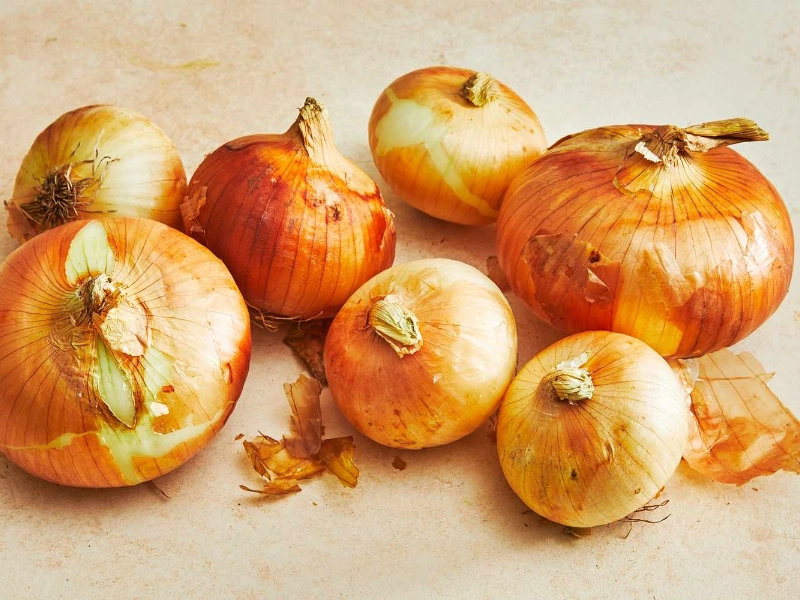2. The Science Behind the Scent: Understanding Onion's Compounds

Before starting our onion-sleeping experiment, understanding the scientific foundation behind their potential health benefits is essential. Onions aren't just culinary staples; they're complex organisms containing various compounds that contribute to their distinct aroma and possible medicinal properties. Exploring these compounds provides insight into potential effects of having onions nearby during sleep. One of onions' most notable compounds is allicin, a sulfur-containing substance also found in garlic and other Allium family members. Allicin creates onions' strong, pungent smell, released when onions are cut or crushed as part of the plant's natural defense mechanism. Interestingly, allicin doesn't exist in intact onions; it forms when the enzyme alliinase reacts with alliin released from damaged onion cells. Allicin has been widely studied for its potential health benefits. Research suggests it possesses antiviral, antifungal, and antibacterial properties. Some studies indicate allicin may boost the immune system, helping protect against common illnesses. Its anti-inflammatory properties have also been observed, potentially aiding management of certain health conditions. Another important onion compound is quercetin, a flavonoid antioxidant. Quercetin has been associated with several health benefits, including reduced blood pressure, decreased inflammation, and potential anti-allergy effects. While more research is needed, some studies suggest quercetin may also improve sleep quality. Its antioxidant properties help protect cells from free radical damage, promoting overall health and potentially extending longevity. Onions also provide vitamin C, a well-known immune booster. Although vitamin C content may not directly relate to sleeping with onions, it contributes to the vegetable's overall health benefits. Additionally, onions contain essential minerals like manganese and potassium, supporting various bodily functions including bone health and cardiovascular function. When considering sleeping with onions, the volatile organic compounds (VOCs) they emit become particularly intriguing. These compounds may be inhaled during sleep or absorbed through skin. While the extent of this absorption and its bodily effects remain unclear, practice proponents believe these compounds can enter the bloodstream and provide health benefits. The theory suggests that close onion proximity during sleep allows continuous exposure to these potentially beneficial substances. Although these compounds show promise in controlled studies, their effects in sleeping-with-onions contexts aren't well-documented. The concentration of compounds released by whole or sliced onions in bedroom environments may differ significantly from those used in scientific experiments. As we continue our week-long experiment, we'll monitor how exposure to these compounds during sleep might affect overall health. While extraordinary claims warrant cautious approach, understanding onions' chemical composition provides scientific basis for exploring this unconventional method. This blend of traditional wisdom and modern science makes the experiment both intriguing and potentially insightful.
Advertisement
Recommended Reading: The Worlds Most Beautiful Girl Is All Grown Up Now
You are viewing page 2 of this article. Please continue to page 3
























Feels like a lever concept.
Facilitates multi-horizon planning.
Guards against silent scope inflation.
Gently challenges status comfort.
Encourages micro-validation habits.